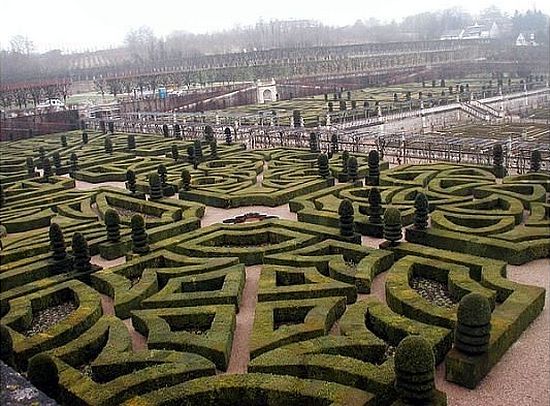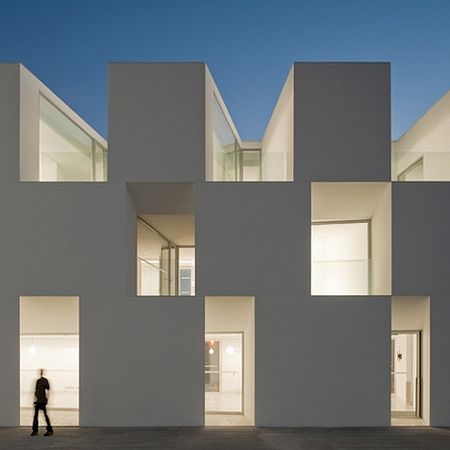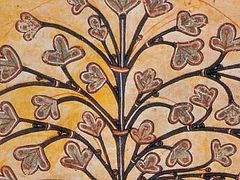 The 18th Century Mastery of Creation
The 18th Century Mastery of Creation Words have a way of getting hijacked. Language refuses to stay unchanged and the result can be confusion, particularly when language is compared across the centuries. A common sentiment, written in one century, can be taken to mean something completely different in another. Such is the case with the word “rational.” The word was hijacked around the 18thcentury and has become a chief accomplice in the misdoings of the Modern Project. Among the most noble words ever applied to human life, its meaning has been changed and placed in service of the greatest reduction our humanity has ever faced. It is time to take back our rationality.
The use of reason in Christian tradition (from where it was hijacked) is quite interesting. It is ultimately an attempt to render the Greek term “nous” [νοῦς]. It is a technical word for an aspect of the soul, particularly that aspect that has to do with the unique human ability to know and commune with God. It is sometimes rendered as “heart.” Latin scholars, struggling to translate nous into Latin, rendered the word as intellectus. The contemporary meaning of “intellect” also shows the modern evolution and hijacking of a primitive word. For modern speakers, neither “intellect” nor “rational” carry any spiritual associations, but both have their origins precisely in the Christian doctrine of the human soul.
The change in meaning represents a radical shift in the understanding and definition of how human beings exist. It is purely a product of the modern project. The idea arose around the 17th century (and later), that human beings, using “reason,” which had now been equated with scientific inquiry, logical decisions based on observable phenomena in repeated experiments and the like, could make their lives better and free themselves from the constraints of tradition, convention and all that had gone before. In that intellectual and political movement that created our “modern” world, a powerful engine was unleashed. Technology enjoyed a great leap forward as it became a focal point of culture. But slowly, as traditions and customs were swept aside, something unforeseen came into existence: modern man with a misery and confusion unknown in all of human history. I will justify that statement shortly. Human beings are miserable and confused in our present world because they are not “rational” in the modern sense of the word, and they do not like being forced into that mold. We regularly rebel against its consequences but don’t know why. Our true humanity resists reduction – a fact not unrelated to our salvation itself.
No one can deny the power of “reason” as defined in the modern project. Careful observation, repeatable experimentation and measurement, certainly yield amazing results. As I have written before, there is an undeniable correlation between math and the observable universe. Difficulties begin to arise when that correlation is taken to be the sum total of our existence. The advent of computing machines has increasingly put pressure on human beings to explain how we are any different.
However human beings exist, we are not mathematical cyphers. We use math, but we are not math itself (or certainly no math known to human beings). Among the greatest of all myths of modernity is that the application of reason (meaning a math-driven control of all things) will actually yield a preferable result. The givenness of nature and the world around us have become a “tradition” that must be overthrown and managed in order to yield the greatest possible satisfaction. Doubtless, this idea has been stated in far more sophisticated and alluring forms, but it remains the underlying assumption of all modernity.
What this management sometimes produces says volumes. The rationalized gardens of the Enlightenment have a wonderful beauty. Symmetry has an appeal to the human eye. But such gardens are also icons of human arrogance. Landscapes are forced into “unnatural” forms and shapes – things achievable only through violence and constant management. Growing things become the enemies that must be controlled. Such gardens are not about plants. The plants themselves disappear and become only a paint on the palette of modernity.
Far worse are the results we have seen in architecture. I offer the winner of the prestigious Mies Van der Pohe Prise, the “home for the elderly” in Portugal. One can only pray that no real elderly have been confined to this antiseptic whiteness. It is so devoid of nature that death will doubtless come as a relief to its inmates. It is, in the gushing writings that accompany its description, something that is “peaceful.” It is indeed peaceful, like death is “peaceful.” It is also profoundly anti-human.
 “House for the Elderly” – in Alcácer do Sal, Portugal (winner of Mies Van der Rohe Prize)
“House for the Elderly” – in Alcácer do Sal, Portugal (winner of Mies Van der Rohe Prize)  A room with a view in the “House for the Elderly”
A room with a view in the “House for the Elderly” No one denies the desirability of technology. Curing diseases and producing clean water have been an object of human interest throughout our history. But the success of such efforts do not justify a philosophy that falsely claims to be their progenitor. The curing of disease is not worth the cost of living in an antiseptic environment of sterile white lines and angles. It amounts to little more than swapping an organic disease for madness.
There has, however, been a number of historic rebellions against this mathematical treatment of reason. Very prominent among them has been a “turn towards the self” and the exaltation of a perceived inner set of needs as rationale for individuals. This meshed well with the growing field of psychology in the 20th century, and was quickly embraced by a burgeoning consumer culture that encouraged individuals to indulge and explore their various “needs” and desires. Individuals are now deeply in the throws of this consumerism while the technology of a distorted rationality creates ever more “pleasing” choices. Any “need” you can imagine quickly becomes a “right.”
True reason for Christians should be understood in its proper, classical sense. It is the nous. The nous is our capacity for knowing and perceiving God. It is also our capacity for perceiving all things in their true significance and meaning. The substitution of modern definitions for reason has deadened the human ability to perceive the nous itself. We have been taught to ask the wrong questions.
The thought process of modernity can be described as an abstraction that seeks to shape reality. The nous does not shape reality – it simply perceives it, and in so doing, even learns to perceive God.
God is not an abstraction, though modernity has taught us to think that He is. For modernity, if there is a God at all, then He is the Supreme Abstraction. That fallacy draws our attention away from the world as it is and towards our thoughts about the world. And every revelation of God-in-the-world is dismissed as mere psychology. We think our own mind is The Thing.
Our true reason (nous) belongs in this world and is ideally suited to do just what it is given to do within the Christian tradition. There is abundant evidence of this function in the Scriptures – evidence that we most often ignore or misinterpret.
But now ask the beasts, and they will teach you; And the birds of the air, and they will tell you. Or speak to the earth, and it will teach you; And the fish of the sea will explain to you. Who among all these does not know that the hand of the LORD has done this, in whose hand is the life of every living thing, and the breath of all mankind? Does not the ear test words And the mouth taste its food? (Job 12:7-11)
This beautiful passage is quickly dismissed within our modern hearing as mere poetic license. The modern eye reads it and and says, “Think about animals. Think about birds.Think about the earth and consider your abstractions…What do you conclude?”
But this is not at all what is meant. It says, “Ask the beasts and the birds and they will tell you.” The nous includes our capacity to do this very thing. We hear the beasts and the birds today, but we fail to perceive them.
I recently stood with a group of believers at the edge of the French Broad River in the mountains of North Carolina. It was early morning and we were singing the Akathist hymn, “Glory to God for All Things.” There were rapids in the river that roared as we sang. The juxtaposition of the two made for a noetic event (if you knew how to listen). We sang, and the river sang. I do not say, “It was as though the river sang.” No. The river sang and this can be noetically perceived. It is the same sense by which we know Christ’s Body and Blood in the sacrament. The whole world is sacrament, and is noetically perceived.
One of the most devastating effects of the modern project has been to reduce human beings to a very narrow and selected set of experiences. Nothing actually stands between saying, “The river sang,” and “It was as if the river sang,” other than a set of rigid rules that forbids the former from being more than a metaphor. The result is a denial of fundamental human experience.
Christian tradition, when not reformed within a modern model, remembers the truth of human experience and directs our attention not towards attention itself, but towards the world and God and only towards ourselves within that relation. Modernity is an exercise in the estrangement of human beings from the world, and therefore from the truth of their humanity. And it is this that is experienced as misery and confusion. We have become lonely, lost in our thoughts and enslaved to our passions.
Within the fullness of the Christian Tradition, we can find our true life and recover ourselves within the context of this God-revealing world.
Does not the ear test words and the mouth taste its food?




